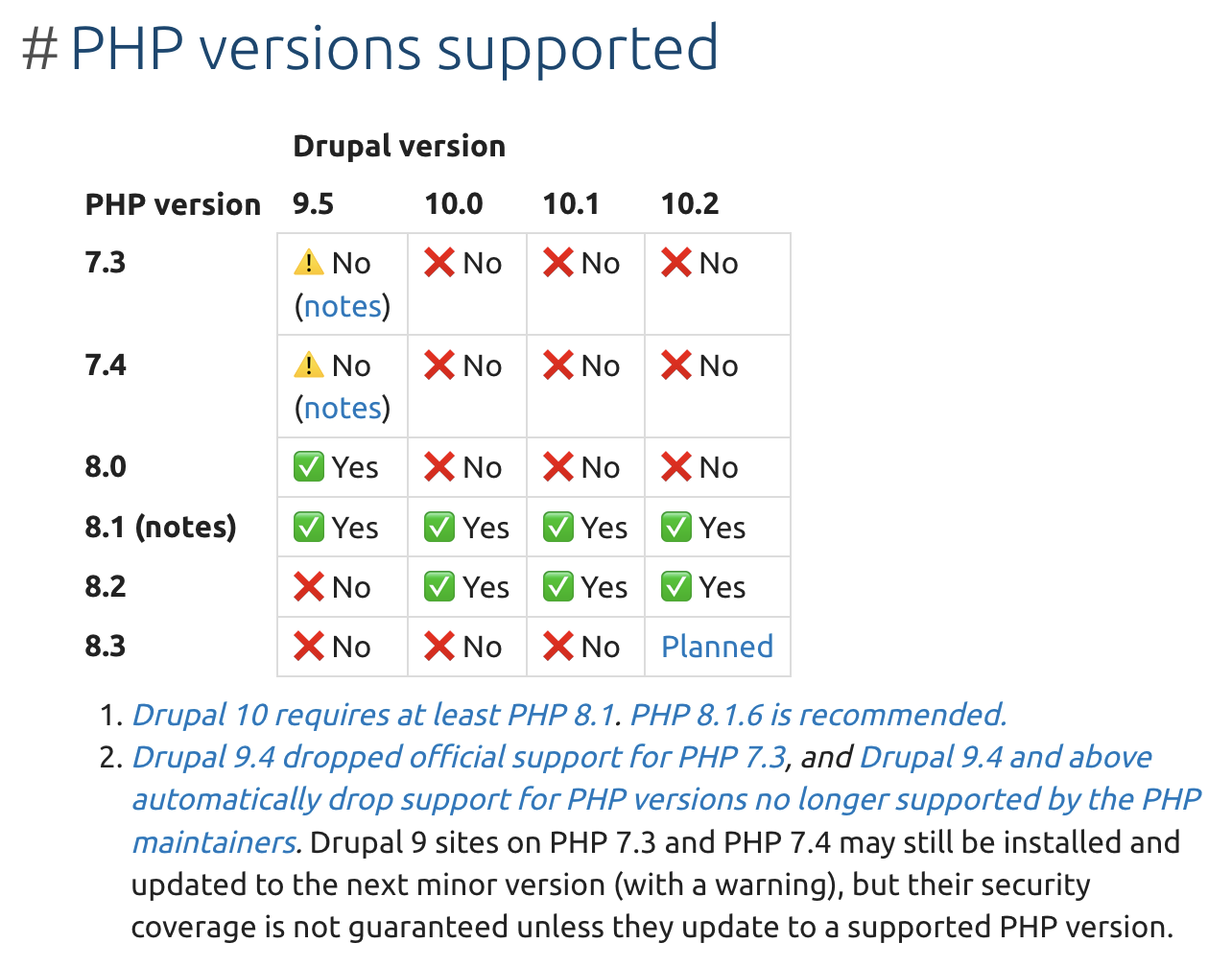Drupal requirements
This page describes the minimum requirements that need to be honoured on any environment Drupal is set up on, locally or in the Cloud (e.g. development or production environments).
For local development and testing, if you choose to run a local server natively, the following requirements for PHP and database and web servers should be in place. If you work locally using Lando or DDEV, the containers will already have everything properly installed for you (that's the main reason why many of us prefer this approach).
PHP
We follow Drupal's PHP requirements.
Drupal 10 uses Symfony 6, which requires PHP 8.1. Requiring PHP 8.1 helps Drupal provide a longer support lifetime for Drupal 10, as well as more stability and predictability in its dependency requirements.

PHP extensions
You will also need to have certain PHP extensions enabled including:
- PHP mbstring
- PHP cURL
- GD library
- XML
You can find more information about Drupal's PHP extension requirements here)
PHP-FPM
Localgov drupal can be run using PHP-FPM. Please note that when using for development the default configuration will output all of Drupal's cache tags for that page as http headers. This can cause the site to crash if there are many headers. It can be resolved by turning these off in: /web/sites/development.services.yml and setting http.response.debug_cacheability_header: false.
A database server like MySQL
You can find detailed information about Drupal's database server requirements here.
A web server like Apache2
You can find more information about Drupal's web server requirements here.